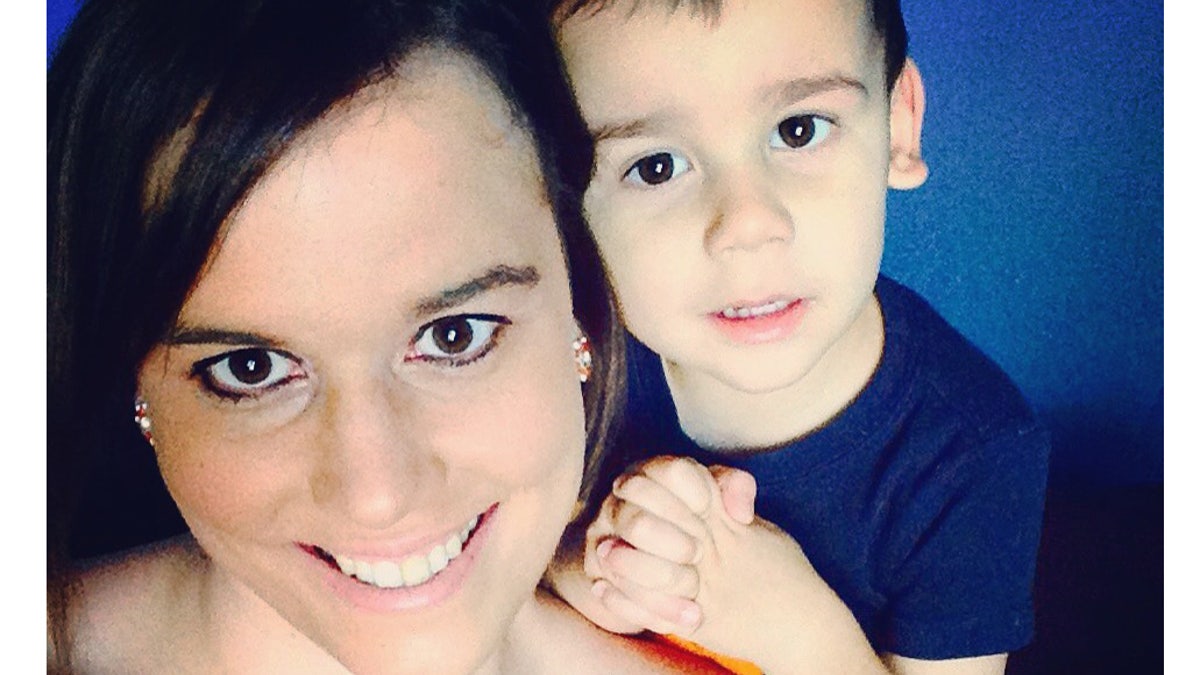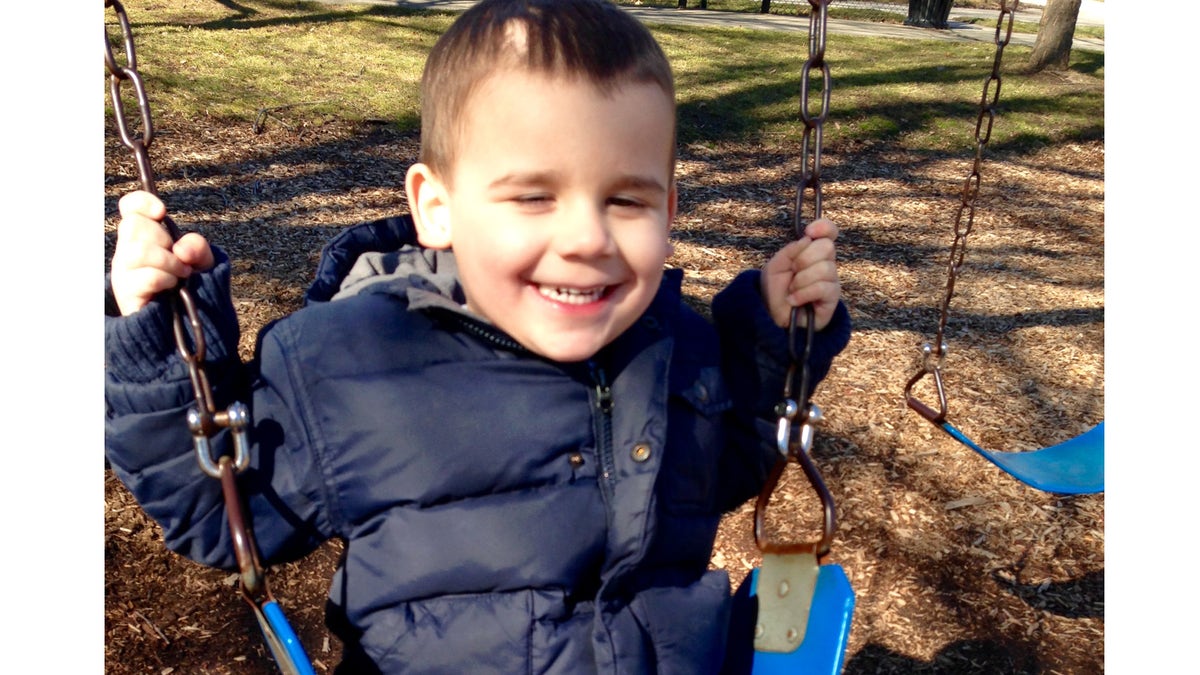
Erica Hammel's son, Wyatt, pictured above, suffered severe brain damage after he was assaulted in 2013 by his father's former girlfriend while in her case. (FoxNews.com)
On a November morning in 2013, Erica Hammel learned over the phone that her 1-year-old son Wyatt was near death -- hospitalized with a skull fracture and brain damage after being violently shaken by a woman trusted to care for him.
Hammel would later learn the woman had twice been convicted of child abuse -- a revelation that led the Michigan mother to fight for a state-wide child abuser registry, which, if passed, would be the first of its kind in the nation.
Wyatt, now 3, survived -- having undergone four brain surgeries -- but has significant impairment. Hammel said she believes a public registry with instant access to prior offenses -- much like that of a sex offender registry -- would have prevented her son's ordeal.
"She had been convicted twice of child abuse in the past and I had no idea," Hammel said of her son's abuser, Rachel Edwards, who was living with Hammel's ex-husband in a rental home in a Detroit suburb at the time of the incident.

Hammel, 27, is pictured with her son, Wyatt, 3. (FoxNews.com)
"Children are the most innocent and vulnerable members of society. At age one, Wyatt obviously couldn’t fight back," Hammel, 27, of St. Clair Shores, Mich., told FoxNews.com.
"Having this type of law would prevent others from going through what my son did," Hammel said of the bills -- collectively known as "Wyatt's Law" -- which are currently under consideration by the Michigan state legislature.
The package of three bills, first introduced to lawmakers in October, would create a state-wide child abuse registry to be maintained by the Michigan State Police. It would also require first, second and third-degree offenders to register for 10 years and fourth-degree offenders for five years.
State Reps. Sarah Roberts, D-St. Clair Shores, Derek Miller, D-Warren, and Vanessa Guerra, D-Saginaw, each sponsored one of the three bills. The child abuse registry would be modeled after the state's sex offender registry, providing the offender's name, address, photo and a description of prior convictions for the public to see. Those on the registry must pay a yearly fee of $50 and update their profiles when moving residences, according to the bills.
"Having this type of law would prevent others from going through what my son did."
Edwards pleaded no contest to second-degree child abuse in Macomb County Circuit Court and was sentenced in February 2014 to 33 months to 10 years behind bars in Wyatt's case. Her first parole hearing is scheduled for March 2017.
Just days before Edwards attacked Wyatt, she drugged a 3-year-old boy with Seroquel, a medication used to treat bipolar disorder. She was later found guilty of fourth-degree child abuse in that case. In 2011, she pleaded no contest to third-degree child abuse after hitting the same boy, leaving marks on his body. Both convictions allowed her to get probation.
The idea of a child abuse registry, while well-intended, would do little, if anything, to prevent future cases of child abuse, according to groups like the American Civil Liberties Union.
"It [Wyatt's Law] currently mimics the sex abuse registry and we do not support that," Shelli Weisberg, legislative director of the ACLU of Michigan, told FoxNews.com Friday.
"It has not affected any changes in sexual criminal behavior. We haven't seen the crimes drop," Weisberg said of Michigan's sex offender registry, which currently has about 40,000 registrants and costs the state approximately $1.2 million each year to maintain.
"That money could be put to much better use at intervention and prevention," Weisberg said of a child abuser registry. "We should do everything we can to protect our children but this offers a false safety net."
Of the proposed Wyatt's Law, Weisberg claimed, "All it does is put our resources into catching someone after they've abused someone and somebody's hurt."
"We have to be -- as a society -- more realistic about how we can put intervention in place, instead of these knee-jerk reactions by lawmakers and a couple people in the public that actually don't do anything to affect child abuse," she said.
The fate of Wyatt's Law currently rests in the hands of the state judiciary committee, chaired by Republican State Rep. Kevin Kesto. A hearing on a vote has not yet been announced. Kesto was not immediately available for comment when contacted Friday.

(FoxNews.com)
For Wyatt, each day is a challenge. The 3-year-old, who loves Mickey Mouse and listening to music, has major cognitive impairment and is partially blind in his left eye. He has difficulty chewing solid food, suffers from headaches and is forced to wear braces on his legs.
But his mother said she believes there is a silver lining in his struggle.
"Despite what happened to him, he can make a difference," Hammel said. "This legislation can absolutely help stop this from happening to another child."
Cristina Corbin is a reporter for FoxNews.com. Follow her on Twitter @CristinaCorbin.




